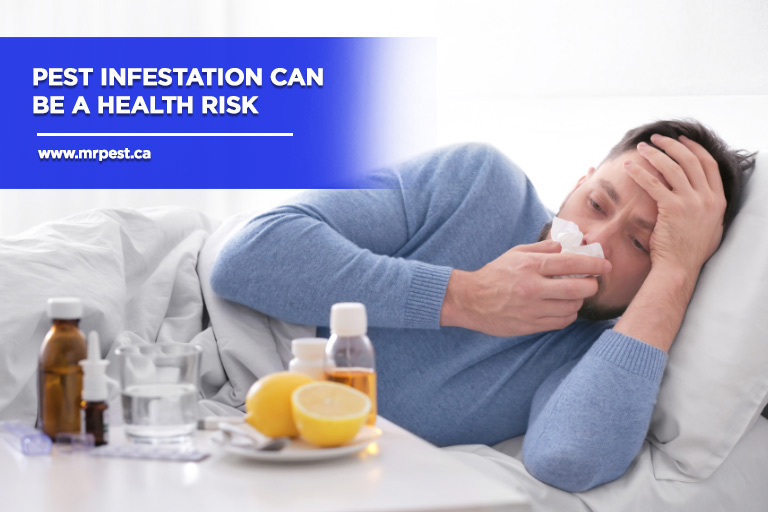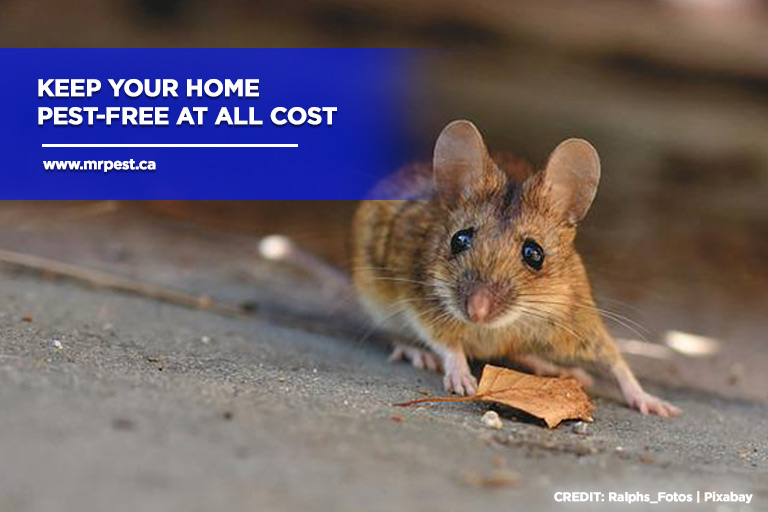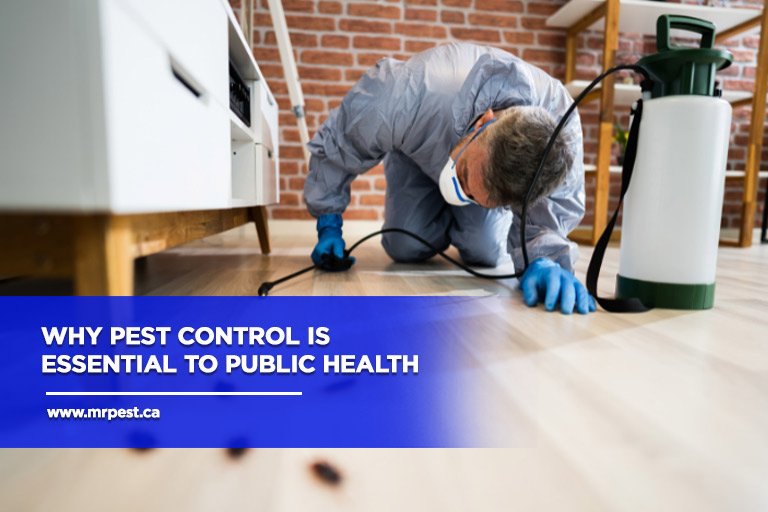Raising the importance of pest control helps the public know about the dangers brought about by pests. Pest-borne diseases, such as hantavirus, salmonellosis, Lyme disease, and West Nile virus, have increased over the years. Pests, like rats, mosquitoes, and cockroaches, have forced many people to the emergency room every year.
Bringing about the awareness of pests and transmittable diseases is something that we should be concerned about.
The Impact of Pest Control on Maintaining Public Health
Pest control goes beyond just keeping your home or business free from pesky insects and rodents. It protects you from the harm caused by pests. Pest control professionals ensure the public is safe from the pests that spread serious health problems by protecting our food sources from being contaminated by the bacteria and viruses they carry. Pest exterminators work quietly in the background to protect schools, healthcare establishments, shopping centres, and more.
Pests that Transmit Diseases to Humans

When pest infestation is left uncontrolled, they can carry harmful pathogens and cause a variety of health risks, including allergic reactions, venomous bites, infections, and exposure to droppings and waste. To protect your and your family’s health, make sure to prevent these pests from entering your home and in case of a pest infestation, seek pest control services as quickly as possible.
- Rodents
Rats and mice are notorious for transmitting life-threatening diseases, such as hantavirus and leptospirosis which can lead to meningitis and tularemia. Rodents carry fleas and other harmful microscopic freeloaders. When they invade your kitchen, they can contaminate your food and water supply.
Pest control helps get rid of rats, mice, and other rodents, keeping you and your family safer and healthier.
- Cockroaches
Cockroaches carry more than 30 different types of deadly bacteria, which can put you at risk of health problems. They are carriers of E. Coli and Salmonella, as well as parasitic worms. Their urine, feces, and saliva can become airborne and exposure to these particles can have an unpleasant impact on your immune system and trigger asthma and various allergies. Like rodents, cockroaches can also invade places where you store your food supplies and contaminate them.
- Ticks and Fleas
Ticks and fleas are among the most common vectors of human disease and carry various health problems in North America. While ticks are a common problem during spring and fall, tick activity also increases in summer, toward the end of June and into July. Ticks transmit numerous diseases, from Rocky Mountain Spotted Fever and Lyme Diseases to blood infection Babesiosis, Anaplasmosis, Tularemia, and Ehrlichiosis.
On the other hand, the peak flea season runs from early August to early October. fleas can transmit diseases through bites, such as flea-borne spotted fever, Murine Typhus, Tungiasis, and Tularemia.
- Bed Bugs
Although bed bugs do not transmit diseases, they carry over 45 bacteria, viruses, protozoa, and other harmful pathogens. However, people react differently to bed bug bites. In rare cases, a person may experience an allergic reaction.
Pest Management Safeguards the Home and Health

With the right skills and years of experience in the pest management and removal industry, Mr. Pest helps keep homes, commercial establishments, schools, and healthcare facilities pest-free. As professionals in pest management service, we do not only prevent pest infestations — we educate the public about the importance of cleanliness and organization to avoid attracting pests to our surroundings. It can be as simple as disposing of your trash properly in garbage bins and maintaining your garden regularly.
To help the public prepare for the peak pest season, we recommend these tips to ensure solutions for pest control:
- To get rid of rats, you do not need to use inhumane methods or pesticides. Follow these steps to prevent rats, mice, and other rodents from entering your home:
- Avoid leaving pet food sitting around and clean up your pet’s food dishes immediately after feeding.
- Maintain your garden regularly. Make sure to mow your lawn, and trim overgrown bushes, shrubs and trees.
- Locate and seal small gaps, cracks, and openings on walls, doors, windows and around the foundation of your home using steel wool.

- Store leftover foods in the fridge or place them in sealable containers.
- To prevent cockroach infestation, make sure to practice proper sanitation:
- Avoid piling up the dishes in the kitchen. Wash them right away after each meal.
- Wipe down tables and counters and sweep the floor to keep them free of food debris.
- Empty your trash bins daily and keep the covers securely in place.
- Throw away old stacks of newspapers, magazines, and unused cardboard boxes as they can be a good hiding place for cockroaches.
- Store foods in tightly sealed containers and never leave pet foods or leftovers sitting out in open space.
- Identify suspected entry points and seal them properly.
- To keep your surroundings mosquito-free, make sure to remove any source of moisture as it can be a thriving place where mosquitoes will lay their eggs. Maintain your garden and lawn regularly—cut grass and trim overgrown plants.
- To eliminate bed bugs, you need to locate the places where bedbugs live and clean them up.
- Use hot water to clean beddings, linens, and other materials where bed bugs thrive and set the dryer to the highest setting.
- Scrub mattress seams thoroughly using a stiff brush before vacuuming.
- Vacuum your bed and the surrounding areas as often as possible.
- To keep your home tick and flea-free, follow these tips to make your home less inviting to these tiny bloodsuckers.
- Vacuum cushioned furniture, carpets, cracks and crevices on floors frequently to remove eggs, larvae, and adults.
- Use hot steam and soap to kill ticks and fleas in all stages of their life cycle.
- Make sure to wash the beddings where your pets lie with hot, soapy water twice or thrice a month.
If these preventative measures failed to work, be sure to contact Mr. Pest Control to tackle all your pest problems. Our team of professionals will ensure to provide you with superior service and long-term solutions for pest control in Orillia and the nearby areas using the latest technology and progressive pest control techniques. Give us a call today at 705-326-3377 to book an appointment or fill out our contact form to send us a message.




